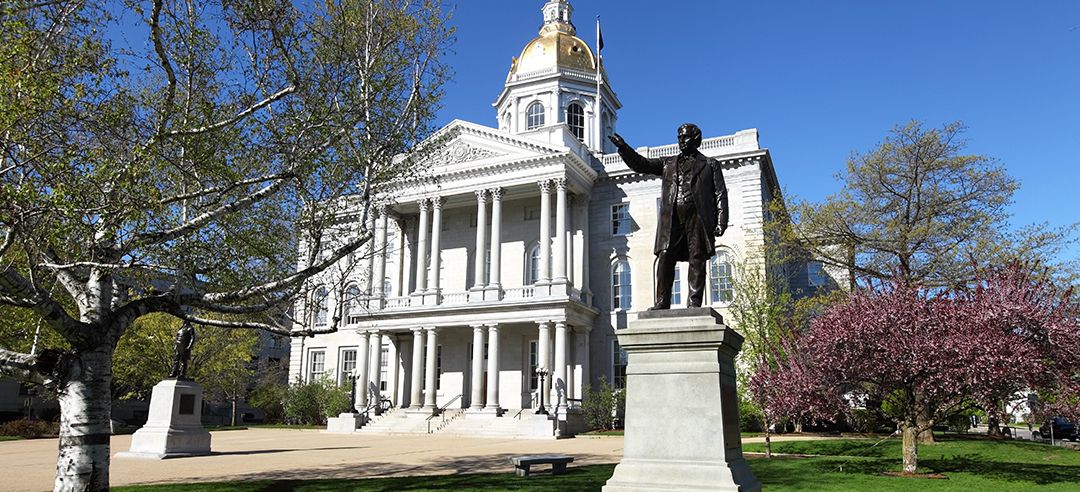Building code updates
By BOB QUINN
Chief Executive Officer
The legislature is currently debating efforts to update New Hampshire’s statewide building and fire codes. Currently, the state is operating under the 2018 versions of the International Building Code, Life Safety and Fire Codes, and other uniform codes. House Bill 1059 and Senate Bill 599 would bring those codes to the 2021 versions.
Meanwhile, both the House and Senate have chosen not to update the International Energy Code to the 2021 version and seem content to keep that code at the 2018 version. Opposition has centered around up-front costs on energy efficiency requirements in the 2021 Energy Code which could add significant costs to construction. Proponents of updating the energy code argue that the long-term cost savings for property owners would make up for the upfront expenses.
House Bill 1058 has passed the House of Representatives, while Senate Bill 599 has cleared the Senate.
Municipal authority to amend codes altered
Existing statute allows municipalities to amend the state building and fire codes, as long as those amendments are run through the state’s Building Code Review Board (BCRB). By acting as a statewide clearinghouse of town codes, developers can review BCRB information to better understand code differences between communities. Unfortunately, most communities have ignored this requirement and don’t seek review of their proposed code changes to the BCRB.
Additionally, some towns have brought entirely different codes, in conflict with state law, to the BCRB for approval. Senate Bill 437 would curtail and clarify a town’s ability to adopt codes which conflict with the state-adopted building codes and underscores the requirement that towns must seek review of any code changes with the BCRB.
The bill has passed the Senate and is currently being debated in the House.
Faster residential driveway approvals
Anyone looking to build a driveway on a class I or class III highway, or the state-maintained portion of a class II highway, must receive a permit from the Department of Transportation. Property owners have expressed concerns that the permitting process can be needlessly lengthy.
House Bill 1202 states that for any existing or proposed residential driveway, including multifamily development, the department of Transportation must issue a permit within 30 days of filing. If the department fails to approve or deny a permit within that time, it is considered approved by default, allowing the applicant to proceed with the project as presented in the application. The department and the applicant may, by mutual agreement, extend any of the deadlines in this section.
The bill has passed the House of Representatives and will now be taken up by the Senate.
Extension of development ordinance changes
House Bill 1215 would alter RSA 674:39 by extending the time period a subdivision plat or site plan is exempt from subsequent changes in subdivision regulations, site plan regulations, impact fee ordinances, and zoning ordinances. Currently, recorded plats and plans are exempt for a period of five years, as long as “active and substantial development” began within 24 months of the approval. The bill would change this period to 10 years, and extend the "active and substantial development" period to five years.
The bill has passed the House and is currently in the Senate.
Licensing for active military and spouse
Both the House and Senate have bills which are designed to make it easier for an active military member or spouses of active military members to practice within their profession, including real estate, without having to obtain New Hampshire licensing.
Both Senate Bill 485 and House Bill 1385 would allow a member of the armed forces in the United States, or their spouse, to apply for a temporary license for not less than 180 days if they meet the following conditions: have an active professional license in another state, and are the subject of a military transfer to New Hampshire.
Both bills also allow military education, training, or service to be acceptable for the specific regulated occupation or profession. The House and Senate have both passed their versions of the bill.
Quote of the Week
“Housing affordability was, hands down, the number one concern heard across the state … for too many of our younger residents in too many of our communities, the math simply doesn’t work. “
–Will Stewart, executive director of Stay Work Play New Hampshire, a statewide nonprofit with the mission to attract and retain more young Granite Staters, discussing a series of listening sessions across New Hampshire with young professionals ("Young Granite Staters want to stay, but it isn't easy," Union Leader, April 13, 2024).
For more information, contact New Hampshire Realtors CEO Bob Quinn: bob@nhar.com.

